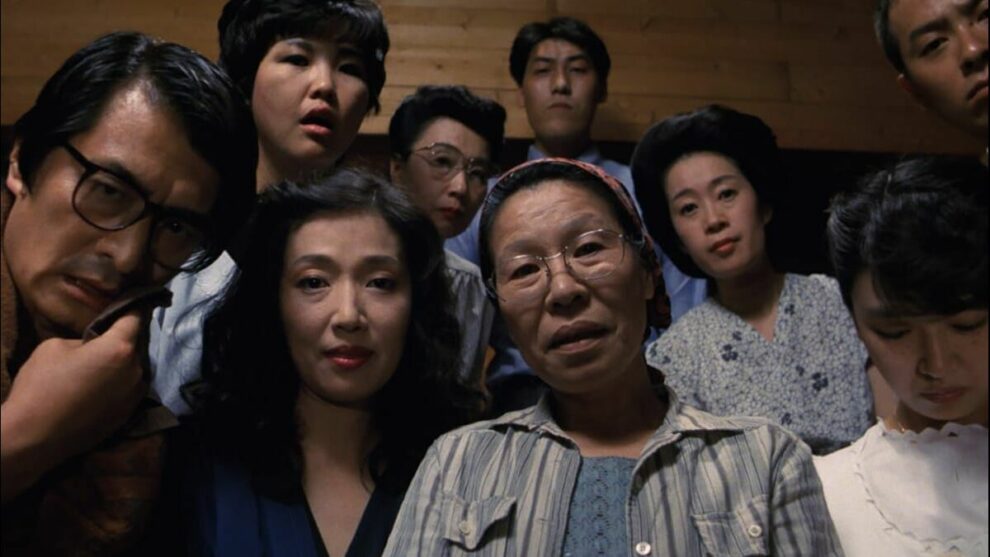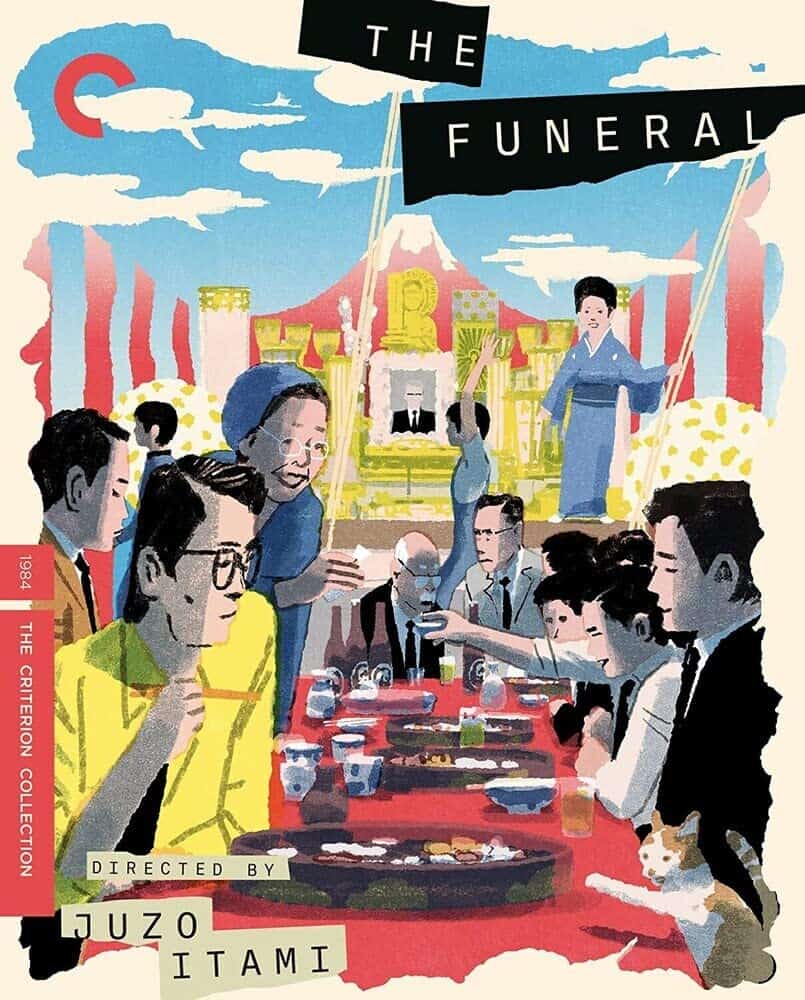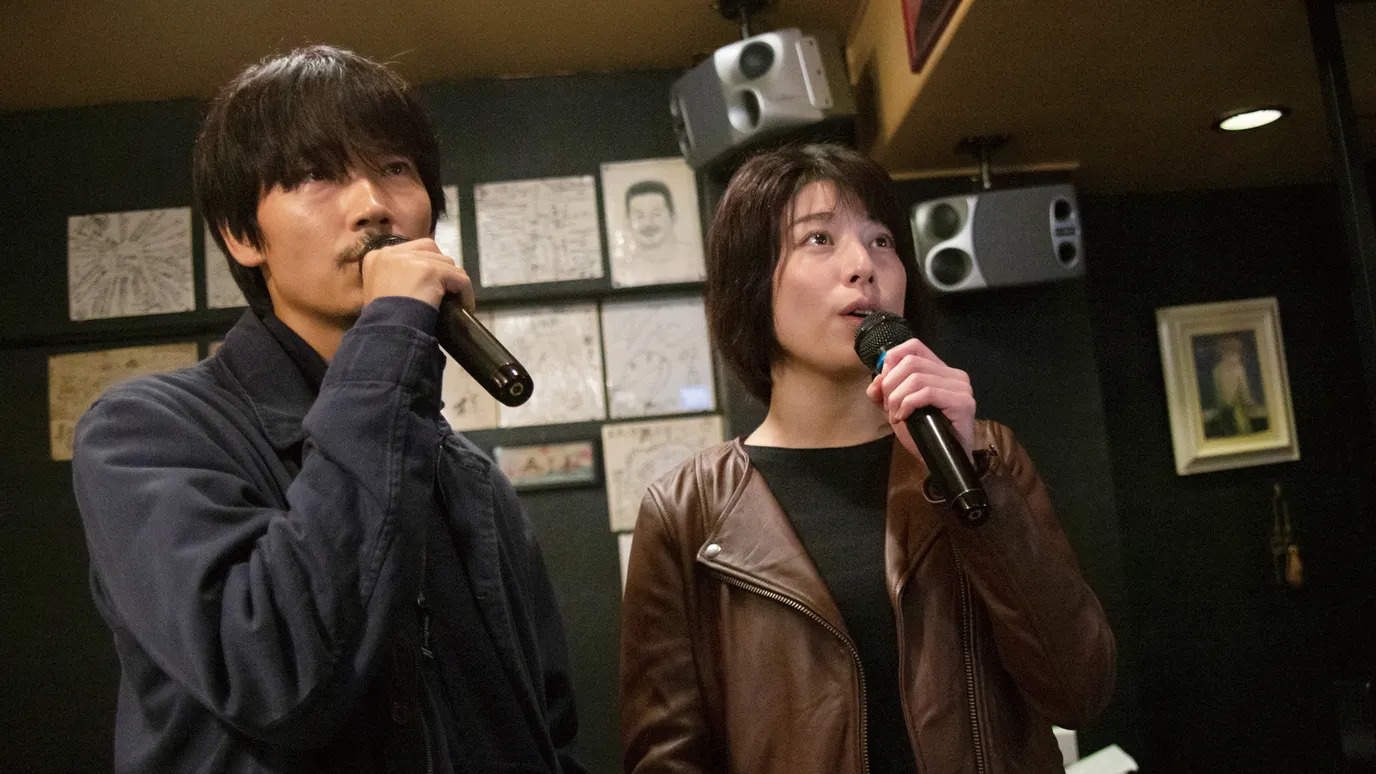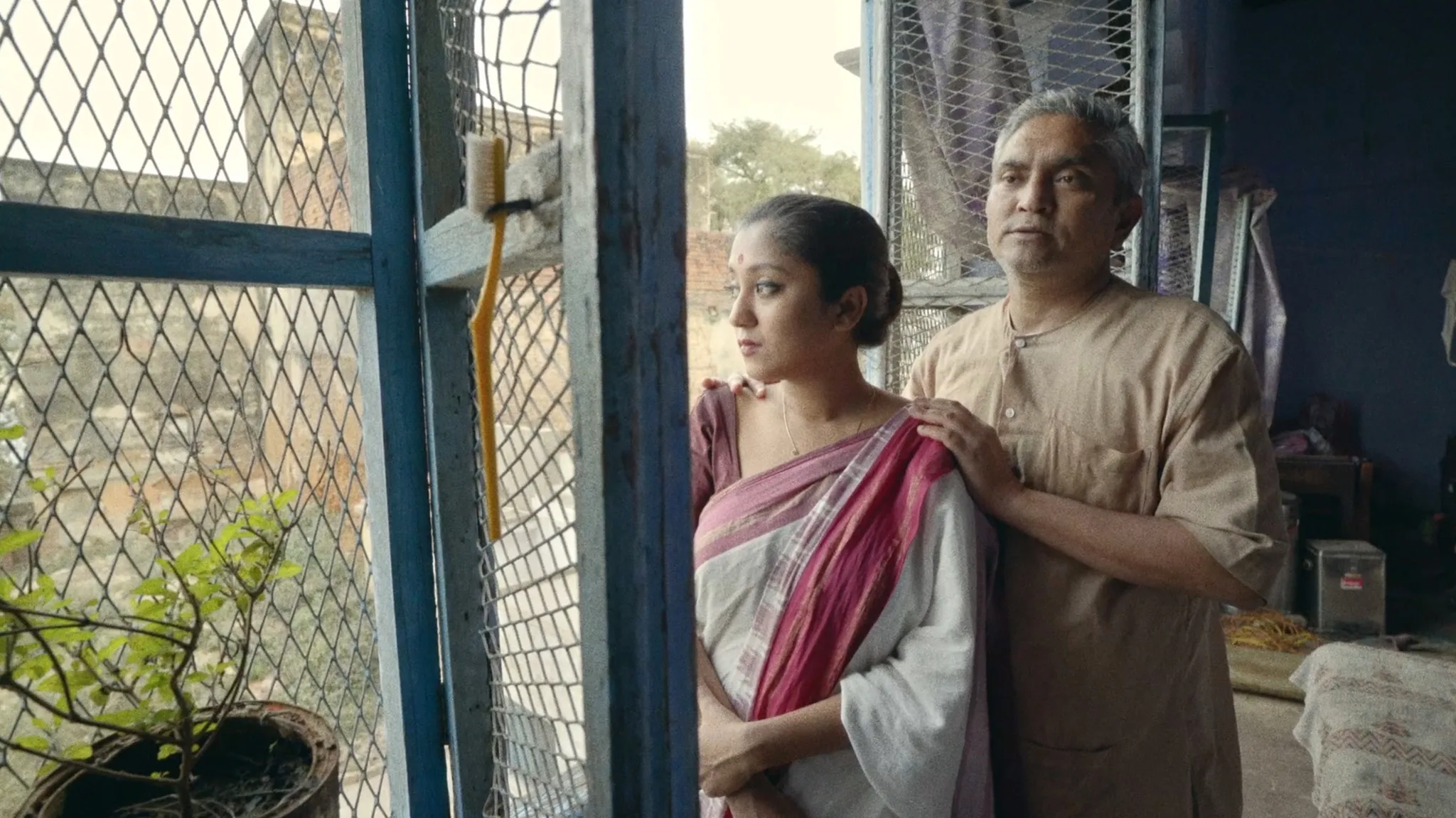In what is definitely one of the greatest transitions in movie history, former actor Juzo Itami wrote and directed his first film in 1984, “The Funeral” which ended up netting five Japanese Academy Awards in 1985, including Best Film, Best Director and Best Actor for Tsutomu Yamazaki, while it also came first in the annual Kinema Junpo critics' poll. The production was financed by Itami and his wife Nobuko Miyamoto, along with a friend of theirs, the cake mogul Yasushi Tamaoki, and was distributed by ATG. The script was inspired by Itami's own experience of his father-in-law's funeral, while it was shot in the house of the family, and the son of the couple also played a part.
The movie begins with the narrator introducing us to an elderly couple, Shinkichi Amamiya and his wife, Kikue, just before the former has a heart-attack and ends up dead. It turns out the narrator was their son-in-law, actor Wabisuke, who learns of the news while shooting a commercial with his wife, Chizuko, also an actress. It falls to them to organize the funeral and tend to the many guests and rituals for what is a three day ceremony, that is to take place in the house the elderly couple lived. They have to choose a coffin, hire a priest, hold a wake, learn formal funeral etiquette and hold the service itself.
Under the supervision of funeral planner Ebihara and their manager Satomi, both of whom are soon revealed to be quite willing to gain as much money from the family as possible, they start dealing with everything step-by-step. An uncle who insists on tradition to an absurd degree, a drunken mistress, a number of drunken relatives, and numerous kids who simply run around in the house, make the whole endeavor even more troublesome.
Check also this interview
Using his trademark episodic, filled with characters approach, Juzo Itami comes up with a movie that seems to focus on the gap between two generations of Japanese people, and particularly how the obsession with tradition and etiquette of the previous one was simply a burden for the new one. Furthermore, the fact that the latter still had to adhere to every detail, makes a comment about how heavily tradition, and also the “what will people say” concept weighed for everyone in society, with this aspect being the main source of comedy here.
Itami, however, pokes on a number of concepts through the individual characters and particularly the men in the movie, all of which seem to be quite faulty. The priest who arrives in a Rolls Royce but still expects a donation from the family, the funeral planner who tries to inflate the family's spending any way he can, the uncle who seems to establish his importance by criticizing every small strain from tradition, the one who cheats his wife, the manager who steals, and a series of drunken individuals all fall under this category, with the comments they express also being rather eloquent.
Although the fable approach to what is happening essentially remains from beginning to end, Itami turns towards more dramatic paths close to the end, as the ending of the ceremony also takes place. The speech of the uncle and even more so, the one of the newly widow are particularly impactful, and among the best (acting) moments of the film, with Hideji Otaki and Kin Sugai respectively being captivating in the particular moments. Regarding the acting, Tsutomu Yamazaki as Wabisuke highlights his unwillingness to be part of all the proceedings quite eloquently, while Nobuko Miyamoto as Chizuko showcases how she knows everything that is happening but chooses to just ignore and tough it out, in the most impressive fashion.
Also of note is the fact that the presentation of everything concerning the funeral rituals is done with utmost realism and attention to detail, from the bowing of the nurses in the hospital to the burning of the deceased, to the point that the movie could be experienced as a documentary about the particular aspect. DP Yonezo Maeda captures everything quite closely, with his work being dominated by close shots and zooms on the face of the protagonists, in an approach that does add a sense of intimacy to what is happening. The coloring is also impressive throughout, while special mention should be given to a home video scene that is in black-and-white and is quite artful in its depiction, if somewhat disconnected stylistically from the rest of the movie. Akira Suzuki's editing induces the movie with a relatively fast pace that suits the episodic style of narrative, although the truth is, that the movie could do with fewer episodes.
“The Funeral” is a very easy to watch movie about how Japanese families work, particularly regarding the case of death, but also has a universal appeal due to the comments Itami makes, which extend much further than just the ones about family. Itami also proved that he knew how to handle chaos and also produce much laughter in the process.
















